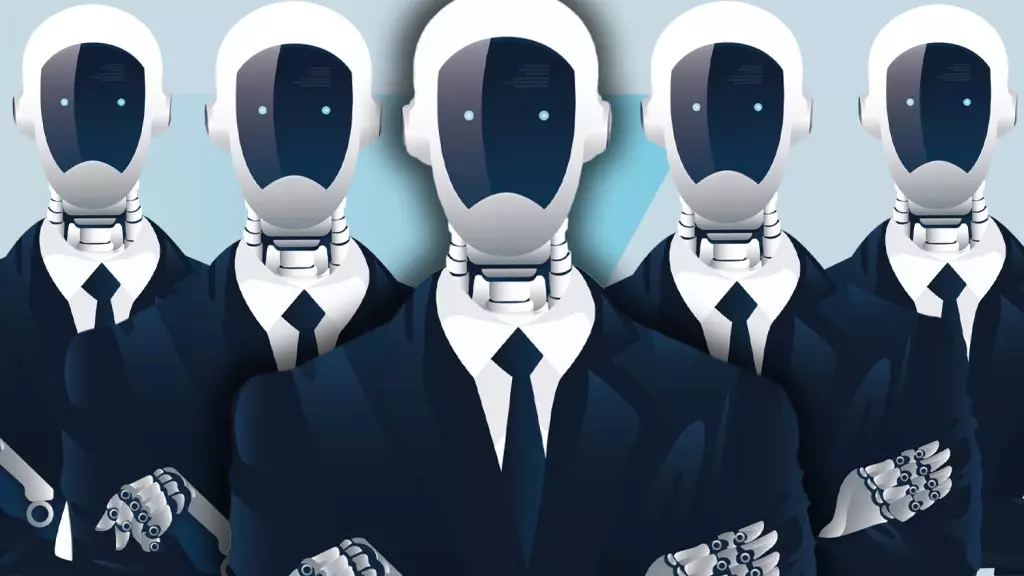The rapid advancement of artificial intelligence (AI) technologies has sparked a pressing debate over intellectual property and the rights of performers, particularly actors in the UK. The actors’ union, Equity, has identified a significant concern over the use of rights-protected materials for training AI models. As major companies pursue AI innovations, they increasingly seek access to content created by actors, often without adequate compensation or recognition of their rights. In this evolving landscape, the question arises: how can the rights of individuals in the creative industry be protected amid the growing use of AI?
In a robust open letter directed at influential bodies such as the BBC, Disney, ITV, and Pact, Equity has made its position clear—should the breaches of their members’ rights persist, legal action may be pursued. This assertive stance highlights the union’s commitment to safeguarding the interests of its members. Liam Budd, an official from Equity, characterized the situation as “industrial scale theft.” This rhetoric evokes a sense of urgency, indicating that the stakes have risen considerably in the battle for creative integrity in the age of AI.
Equity’s call to action emphasizes the necessity for a dialogue regarding the exploitation of actors’ talents and data. The union is advocating for a framework that incorporates informed consent, transparency, and fair compensation when rights-protected works are utilized for AI purposes. The actors’ union recognizes the legitimate need for content in training AI systems but insists that this cannot come at the expense of performers’ rights.
One of the critical issues highlighted by Equity is the role of content owners who facilitate access to actors’ work through licensing agreements. These arrangements, while legal, may undermine the original creators’ rights and their financial remuneration. Equity draws attention to the reality that several content owners have begun licensing their materials to technology companies without substantial consideration for the actors whose work is being utilized. This trend raises ethical questions about responsibility and fairness in the distribution of profits generated from AI systems trained on performers’ contributions.
As AI continues to proliferate in various sectors, including entertainment, it becomes increasingly vital for those within the industry to engage in heightened conversations about rights protection. Equity notes that while they have had productive discussions with certain companies, there remains a need for broader dialogues that include players across the spectrum, such as broadcasters, video game platforms, and streaming services. Without collective awareness and responsibility, the erosion of performers’ rights could become even more pervasive.
The Necessity for Updated Legal Frameworks
The letter from Equity also underlines the urgent need to update the legal frameworks governing intellectual property rights, especially in the context of technological advancements. The Copyright, Designs and Patent Act 1988 and the UK General Data Protection Regulation could benefit from revisitations to ensure they encompass modern technological realities and creative practices. Moreover, the UK government’s proposal for creating a copyright-cleared training dataset for AI is a step forward, indicating a recognition of the potential benefits of such a balance between innovation and rights protection.
The actors’ union aims to maintain a constructive dialogue with producers about equitable practices moving forward. Equity’s demand for informed consent ensures that performers have a say in how their work is used. It’s a fundamental shift in how the creative industry might operate—transforming the current dynamics between artists and technology developers into a more collaborative and respectful relationship.
As artificial intelligence continues to reshape the landscape of creative industries, the discussions surrounding actors’ rights are paramount. Equity’s firm stance highlights a vital intersection of technology, ethics, and creativity—an area where performers must not be left behind. With ongoing negotiations with Pact extending into 2025, the outcome of these discussions will significantly influence the future of performers’ rights in an AI-driven environment. The call for fair practices is not just about protecting the past; it is about ensuring a sustainable future where creative contributions are respected and valued—an essential foundation for a thriving industry in the age of AI.

Leave a Reply